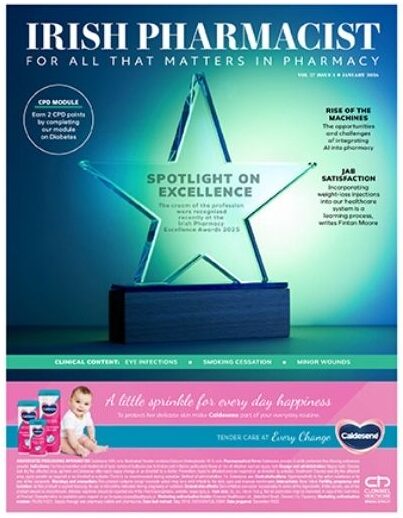Dublin have presented the first study globally to assess lung function and respiratory symptoms in patients across the full range of initial Covid-19 severity. To date, little has been known about lung health following infection with SARS-CoV-2, or whether later respiratory problems, fatigue and ill health are associated with the disease’s initial severity.
The team found that fatigue, ill health and breathlessness were all common following Covid-19. However, these symptoms appeared to be unrelated to the severity of initial infection or any single measurement at the time of an outpatient appointment. The paper was published recently in the Annals of the American Thoracic Society.
To date, there have been very few peer-reviewed publications looking at respiratory follow-up at a medium time point post-Covid. The researchers are also the first to include patients who were not hospitalised during acute infection and followed the recommended assessment algorithm for post-Covid patients.
The research, led by Dr Liam Townsend, Research Fellow, Department of Clinical Medicine, Trinity College and St James’s Hospital, Dublin, is the largest study of post-Covid lung assessment and imaging, with 153 patients included.
The findings suggest that Covid-19 does not cause significant fibrosis, with lung scarring seen on CT scans of only 4 per cent of study participants, following x-ray detection of earlier abnormalities in a larger group.
Sixty-two per cent of patients felt they had not returned to full health, while 47 per cent were classified as having fatigue. Patients who felt they had to exert themselves during moderate exercise also reported they felt fatigued and in poor health. Patients’ length of inpatient hospital stay and frailty were associated with covering less distance in the ‘walk test’ element of the research.
The findings suggest that there is no simple diagnostic test for so-called long-haul symptoms, and that the diagnosis is based on a patient’s own reported symptoms. No disease-related features have been associated with the development of fatigue. So far, the highest-risk group identified has been females under the age of 60.
Dr Townsend commented: “We were surprised by our findings. We expected a greater number of abnormal chest x-rays. We also expected the measures of ongoing ill health and abnormal findings to be related to severity of initial infection, which was not the case. This study demonstrates the contrast between the high levels of symptoms reported post-Covid and low levels of abnormal test results. The clinical impact of this is that patients will need to be assessed (either in person or virtually) to evaluate their post-Covid symptoms, rather than relying on diagnostics.
“From a research perspective, there is a lot of work ongoing regarding the underlying causes of persistent ill-heath associated with Covid-19,” he said. “Looking ahead, further characterising of immune recovery post-infection and its relationship with fatigue, breathlessness and more is needed. Females seem to be disproportionately affected, which also suggests that genetic factors may be contributing.
Socio-economic factors and the effect of poverty on health are also areas of interest for us. The role of race and ethnicity will become clearer with further studies from outside Ireland, as we lack the population diversity to address these here.”







